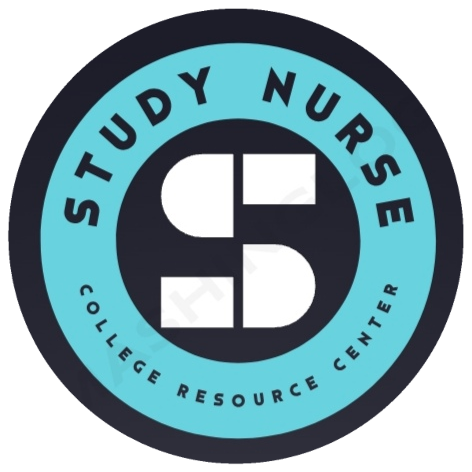Capella University
PHI-FPX3200: Ethics in Health Care
Dr. Ginger Raya
December 22, 2023
Tonya’s Case: Ethics and Professional Codes
Tonya’s case provides insights into the multiple challenges that require the care team to demonstrate understanding of ethics and professional codes. Post-surgical complications and the resulting whole brain death highlights events in the complex clinical environment that call for rational decision-making. Using a ventilator to sustain vital organs reveals the pain and the need for informed decisions guided by the commitment to meeting a patient’s best interests. This paper discusses ethical principles, theories, and ethical codes involved in ending life support.
Ethical Principles and Moral Theories in Tonya’s Scenario
Beneficence and fidelity are key considerations when responding to Tonya’s situation. With beneficence, the care team’s decisions meet the requirement for doing everything in the patient’s best interests (Akdeniz et al., 2021). The decision considers a patient’s preferences. Similarly, fidelity requires the care team to deliver services in a fair and truthful manner. The principle reinforces the need for dignified treatment, including avoiding ending life support while a patient’s heart still beats. Non-maleficence is another vital consideration that reminds healthcare professionals to avoid emotional, physical, and psychological harm (Akdeniz et al., 2021).
In Tonya’s scenario, non-maleficence means acknowledging the fact that the patient is still alive, hence the need for a dignified death. Similarly, the care team should recognize a patient’s autonomy, which allows patients and their families to express their preferences (Gómez-Vírseda et al., 2020). This way, clients have the right to determine their preferred treatment pathway. For moral theory, utilitarianism reminds healthcare professionals to make decisions that produce the greatest happiness (Marseille & Khan, 2019). The theory promotes excellent care that meets everyone’s interests. In Tonya’s scenario, the healthcare team should provide exceptional care that matches the patient’s right to health and well-being.
Professional Codes of Ethics Applicable in Tonya’s Case
Professional codes of ethics require the care team to acknowledge a patient’s right to make informed decisions about their preferred treatment. Keeping patients on life support is among the practices that enhance adherence to informed consent and calls for compassionate, empathetic, and respectful treatment. Ethical codes also include transparency, excellent communication, and patient-centered practices that create a win-win situation for clients and the care team (Akdeniz et al., 2021). Other key considerations include autonomy, non-maleficence, and beneficence that support calls for consistent and excellent delivering of high-quality and safe care. The emphasis is on delivering care that matches a patient’s best interests and prevent the risk of emotional, physical, and psychological harm (Gómez-Vírseda et al., 2020). The decision to take Tonya off the ventilator does not match autonomy and beneficence principles. The decision should reflect the parents’ preferences including the desire for a natural death.
Mission and Value Statements in Tonya’s Scenario
The mission statement highlights the need for consistent delivery of quality and safe care. Providing excellent services reflects the care team’s commitment to delivering compassionate, empathetic, and respectful care. On values, the key considerations are respect, excellent, team efforts, integrity, and efficiency appropriate for optimizing care outcomes (Schueler & Stulberg, 2020). Failure to achieve the best outcomes in a routine surgery raises questions about the team’s commitment to delivering quality and safe care. While Tonya has no chance of regaining, mission and value statements remind the care team to consider the parents’ preferences and desire for the team to uphold sanctity of life. The efforts align with calls for patient-centered and evidence-based care that gives hope to patients and their families.
Accrediting Bodies
Tonya’s situation portray the need for healthcare providers to adhere to standards established by agencies such as the Joint Commission. The organization support calls for patient-centered and evidence-based practices that enhance the quality and safety of patient care. Focusing on the patient allows the care team to understand individuals’ preferences and autonomy.
References
Akdeniz, M., Yardımcı, B., & Kavukcu, E. (2021). Ethical considerations at the end-of-life care. SAGE Open Medicine, 9, 1-8. https://www.ncbi.nlm.nih.gov/pmc/articles/PMC7958189/pdf/10.1177_20503121211000918.pdf
Gómez-Vírseda, C., Maeseneer, Y., & Gastmans, D. (2020). Relational autonomy in end-of-life care ethics: A contextualized approach to real-life complexities. BMC Medical Ethics, 21(50), 1-12. https://bmcmedethics.biomedcentral.com/articles/10.1186/s12910-020-00495-1
Marseille, E., & Khan, J. (2019). Utilitarianism and the ethical foundations of cost-effectiveness analysis in resource allocation for global health. Philosophy, Ethics, and Humanities in Medicine, 14(5), 1-6. https://peh-med.biomedcentral.com/counter/pdf/10.1186/s13010-019-0074-7.pdf
Schueler, K., & Stulberg, D. (2020). How should we judge whether and when mission statements are ethically deployed? AMA Journal of Ethics, 22(3), 239-247. https://journalofethics.ama-assn.org/sites/journalofethics.ama-assn.org/files/2020-02/msoc2-2003_1.pdf

